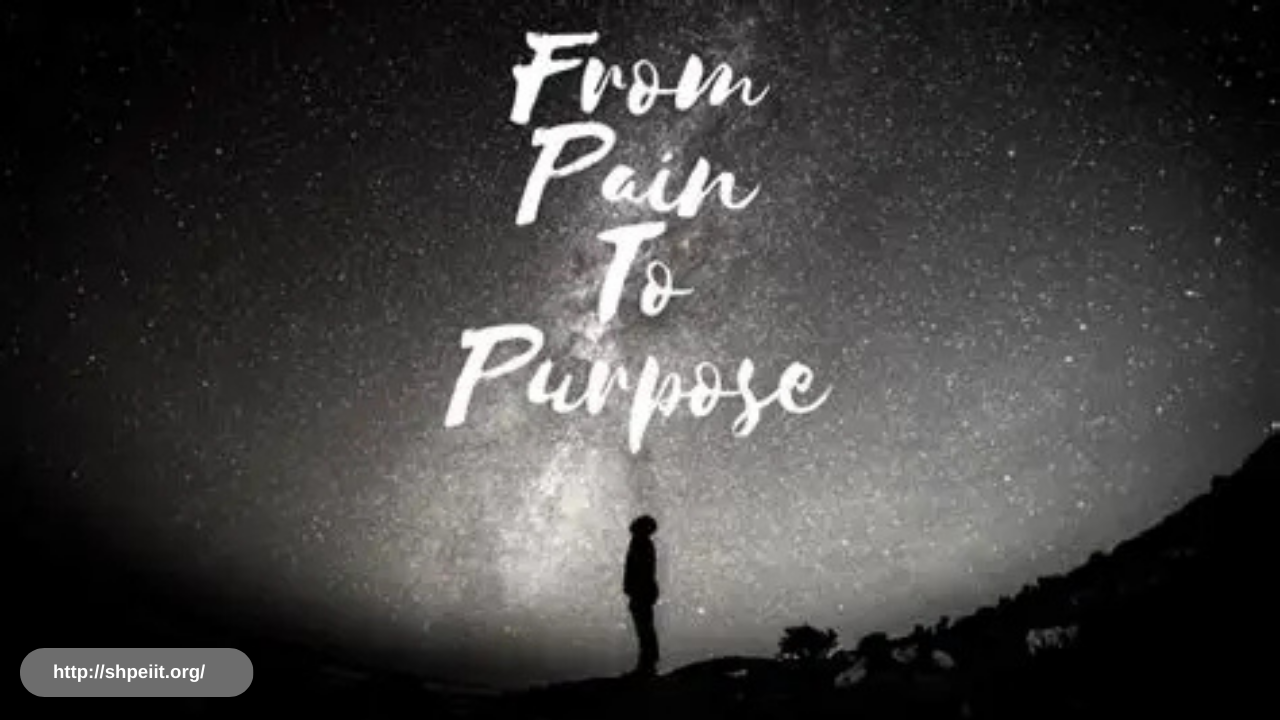The Life of a Professional Writer
The Rewards and Challenges of Professional Writing
From Pain to Purpose: How Sharing Addiction Stories Supports Healing
 The Power of Storytelling in Recovery
The Power of Storytelling in Recovery
Addiction is often surrounded by silence, shame, and stigma. For many individuals in recovery, breaking that silence by sharing their story becomes a turning point in the healing journey. Writing or speaking about addiction is not simply an act of expression. It can also be a therapeutic process that transforms personal pain into a source of strength, hope, and connection.
At SHPEIIT, where addiction recovery and mental health treatment are supported with holistic, faith-based, and individualized approaches, we recognize that storytelling has the power to heal both the writer and the reader. When someone chooses to put their experiences into words, they begin to take control of a narrative that addiction once dominated.
Why Sharing Addiction Stories Matters
Breaking the Chains of Stigma
One of the heaviest burdens carried by those struggling with addiction is stigma. By openly sharing personal experiences, individuals challenge stereotypes and reveal the human side of addiction. Stories replace judgment with understanding, making it easier for others to seek help without fear of shame.
Encouraging Self-Reflection and Growth
Writing about addiction forces individuals to pause, reflect, and process their journey. This self-examination can uncover patterns, triggers, and moments of strength that might otherwise go unnoticed. In inpatient or outpatient care settings, structured writing exercises often complement counseling, offering clients a safe way to process emotions.
Creating a Bridge of Connection
Addiction thrives in isolation, but recovery thrives in connection. Sharing stories allows individuals to connect with others who have walked similar paths. For the writer, it creates a sense of belonging. For the reader, it may provide the inspiration to believe that recovery is possible.
The Healing Role of Writing in Addiction Recovery
Writing as a Therapeutic Tool
Journaling, memoir writing, or even private reflection can serve as powerful therapeutic tools. Research has shown that writing about trauma can reduce stress, improve mood, and help individuals organize difficult emotions. In the context of addiction treatment, writing provides a healthy outlet to release feelings that might otherwise remain bottled up.
Transforming Pain into Purpose
When people share their stories publicly, whether in a support group, through a recovery blog, or in a memoir, they often discover that their words have the power to inspire others. This shift—from being defined by pain to using it as a source of purpose—can be a profound part of long-term recovery.
Balancing Honesty and Self-Care
It is important to acknowledge that writing about addiction can bring up painful memories. Professional guidance, such as working with therapists or faith-based mentors, ensures that individuals navigate the writing process safely. Protecting one’s mental and emotional health is just as important as telling the truth.
A Holistic Approach to Healing Through Stories
At SHPEIIT, recovery is seen as a journey of mind, body, and spirit. Sharing stories aligns with this holistic philosophy by addressing emotional wounds, strengthening mental clarity, and fostering spiritual growth. For some, storytelling may feel like an act of faith—turning brokenness into testimony and struggle into service.
Whether in inpatient care, outpatient programs, or community support settings, individuals are encouraged to find healthy ways to express themselves. Writing is just one pathway, but it is one that often leads to profound healing.
Taking the Next Step
If you or someone you love is struggling with addiction, know that your story is not over. Sharing experiences of pain and resilience can be an essential part of recovery. At SHPEIIT, we are here to walk with you, offering comprehensive treatment programs that blend evidence-based care with faith-driven support.
Your journey matters. Your story matters. And your healing can begin today. Reach out to us to take the first step toward recovery and discover how your pain can become a powerful purpose.
Beyond the Page: How Professional Writers in Mental Health Can Protect Their Own Well-Being
 The Overlooked Struggle of Mental Health Writers
The Overlooked Struggle of Mental Health Writers
Writing about mental health and addiction is more than just a profession. It is a calling rooted in empathy, honesty, and the hope of inspiring change. Writers who cover these subjects often shine a light on stigma, highlight paths to recovery, and share stories that give readers the courage to seek help. But while their words may help heal others, the act of writing itself can take a toll. Constantly engaging with heavy topics such as trauma, relapse, or loss can leave even the most seasoned writers emotionally drained.
Just as individuals in recovery need support and balance, so too do the professionals who write about these sensitive issues. Protecting mental health while writing about it is not only possible but essential.
Recognizing the Emotional Risks of Mental Health Writing
Professional writers in the mental health space face unique challenges. While authenticity is critical, revisiting personal struggles or researching painful experiences can trigger stress, anxiety, or burnout. Over time, this emotional weight can lead to compassion fatigue, where a writer’s empathy begins to feel like exhaustion rather than strength.
To avoid this, writers must practice the same principles of care and balance that treatment centers emphasize in their programs: setting boundaries, practicing mindfulness, and making room for rest.
Setting Healthy Boundaries as a Writer
Choosing What to Share
Writers who have lived experience with addiction or mental health challenges may feel pressure to share every detail. However, setting limits is not only acceptable but healthy. Choosing what to disclose allows writers to protect their privacy while still offering meaningful insight to readers.
Time and Space Matter
Writing about heavy topics back-to-back can compound stress. Building breaks into the writing process gives space to recover emotionally. This rhythm mirrors the recovery journey itself: balance, pacing, and self-awareness all matter.
Building a Holistic Support System
At SHPEIIT, the approach to recovery is holistic, faith-based, and individualized. Writers can adopt similar practices in their own lives. A holistic support system might include therapy, regular exercise, spiritual reflection, and connection with peers. For writers covering trauma or addiction, this balance is critical to staying grounded.
Seeking Guidance and Accountability
Just as those in recovery benefit from mentors and accountability partners, writers need supportive relationships. Trusted editors, counselors, or peers can help identify when content feels overwhelming and offer perspective when balance is lost.
Turning Writing Into a Healing Practice
When approached with care, writing can be more than a profession. It can become a healing practice. Journaling privately, focusing on stories of hope and resilience, and incorporating mindfulness into the writing routine can transform writing from a Protecting Yourself While Helping Others
Writers in the mental health and addiction recovery field play a powerful role in changing lives. But their own well-being must come first. By setting boundaries, embracing holistic practices, and creating strong support systems, they can continue to tell stories that inspire hope without sacrificing their health.
If you are struggling with the emotional weight of writing or living with the effects of addiction and mental health challenges, remember you are not alone. Support is available. At SHPEIIT, compassionate care, personalized treatment, and holistic healing are at the heart of every program. Reach out today and take the next step toward balance, recovery, and renewed purpose.
When Writing Becomes a Trigger: Navigating Personal Trauma While Creating Mental Health Content
 Understanding the Hidden Challenge
Understanding the Hidden Challenge
For many writers, putting words on paper is a form of expression, creativity, and connection. But for those working in the mental health and addiction recovery space, the process can stir up deep and personal emotions. Writing about topics like substance use, relapse, or mental health crises often means revisiting experiences that are raw, painful, or unresolved. This can be especially challenging when the writer has their own history of trauma or recovery.
In the world of addiction treatment and mental health care, we emphasize that healing is not linear. The same principle applies to those who share these stories. Even when a writer is well into their recovery, certain topics or phrases can reopen emotional wounds. Recognizing this is the first step toward creating a healthy and sustainable writing practice.
The Importance of Boundaries in Mental Health Writing
Writers in the addiction recovery field often feel a responsibility to be authentic and honest. While truth is important, so is self-preservation. Setting clear boundaries can protect mental and emotional well-being while still allowing for meaningful storytelling.
Key strategies for maintaining boundaries include:
-
Choosing which personal details to share and which to keep private.
-
Working with an editor or counselor to identify potentially triggering language.
-
Allowing time between drafting and publishing to reflect and process emotions.
These boundaries do not diminish authenticity. In fact, they make it possible to continue producing high-quality content without sacrificing mental health.
Turning Triggers into Tools for Growth
Triggers can be unsettling, but they can also offer insight. When an emotional response surfaces, it can point to areas where additional healing is needed. For writers with lived experience of addiction or mental health challenges, these moments can inspire deeper self-care practices, whether through therapy, peer support, or spiritual reflection.
Holistic treatment centers, such as those offering inpatient, outpatient, and faith-based programs, understand the need for emotional balance. The same applies to writers in this space: nurturing the mind, body, and spirit is essential to staying grounded while working with emotionally charged material.
Support Systems Make the Difference
No one should navigate this alone. Professional writers benefit from the same recovery principles they share with readers: connection, community, and accountability. This might mean having a trusted mentor, joining a support group for creatives in recovery, or regularly consulting with a therapist.
By creating a strong support system, writers can ensure they are not only telling powerful stories but also protecting their own well-being in the process.
Moving Forward with Purpose
Writing about mental health and addiction recovery is an act of service. It educates, reduces stigma, and gives hope to those who feel alone. But it must be done with care. Writers who prioritize their own healing will be better equipped to inspire others.
If you are struggling with the emotional weight of creating mental health content, remember that help is available. Reach out to a recovery professional, connect with a supportive community, and take time for your own healing. The stories you tell can change lives, including your own.